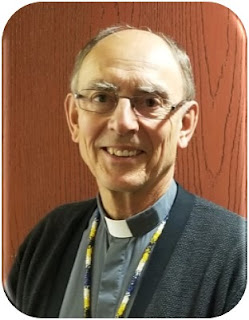 |
| Silk Workers' Revolt - Lyon |
We pray at every conference meeting for the canonization of Bl. Frederic Ozanam, and we all know Bl. Frederic Ozanam to be a man for the poor. In the popular imagination this consists in giving alms to widows and orphans and those in need. While this is true, it is far from the whole picture that describes Frederic Ozanam. As a professor in Lyons and the Sorbonne universities with a doctorate in law, especially commercial law, Ozanam held forth in his lectures on the
proletariat: the wage-earners whose only possession of significant material value is their labour-power. Regarding these workers Ozanam said in one of his now famous lectures at Lyons:
"Exploitation occurs when the boss considers the worker not as a helper but as a tool that he has to drag the greatest possible service out of at the least possible price. Exploitation of a man by a man is slavery" (Lecture 24 at Lyons).
This was in 1840, eight years before Karl Marx published his
Communist Manifesto. Frederic taught that workers had a duty to work in return for the right to a living wage for their families, including being able to educate their children and have time to relax to restore their strength. He was concerned not only with helping the poor in their need but also wanted to address the root causes of poverty. At the time, 26 year old Frederic needed much courage to teach this in his university lectures since the powerful wealthy political class considered this to be political gunpowder designed to stir up the working class to revolt as indeed some had in an earlier uprising by silk workers six years before. In those days, such teaching could have gotten Frederic Ozanam killed. It took another fifty years before official Catholic Social Teaching in the form of an encyclical by Pope Leo XIII validated what Frederic taught.
In the spirit of Blessed Frederic Ozanam, this Lent can be a good time to reflect on our attitudes towards the poor, and the assumptions, usually unconscious, which influence or govern our attitudes. We live in an age and society where many are trapped in precarious employment, many juggling two or even three low-paying, part-time jobs, many others are considered unemployable for reasons such as addiction and mental health, or simply because they are homeless, without an address and without a phone, where many children will leave school too soon and many others will not be able to take on the debt of post-secondary education; others who did are now hounded by debt-collectors. Our assumptions largely determine whether or not we merely want to help the poor in their material need or whether,
like Blessed Ozanam, we also want to see social justice, to see the root causes of poverty addressed.












